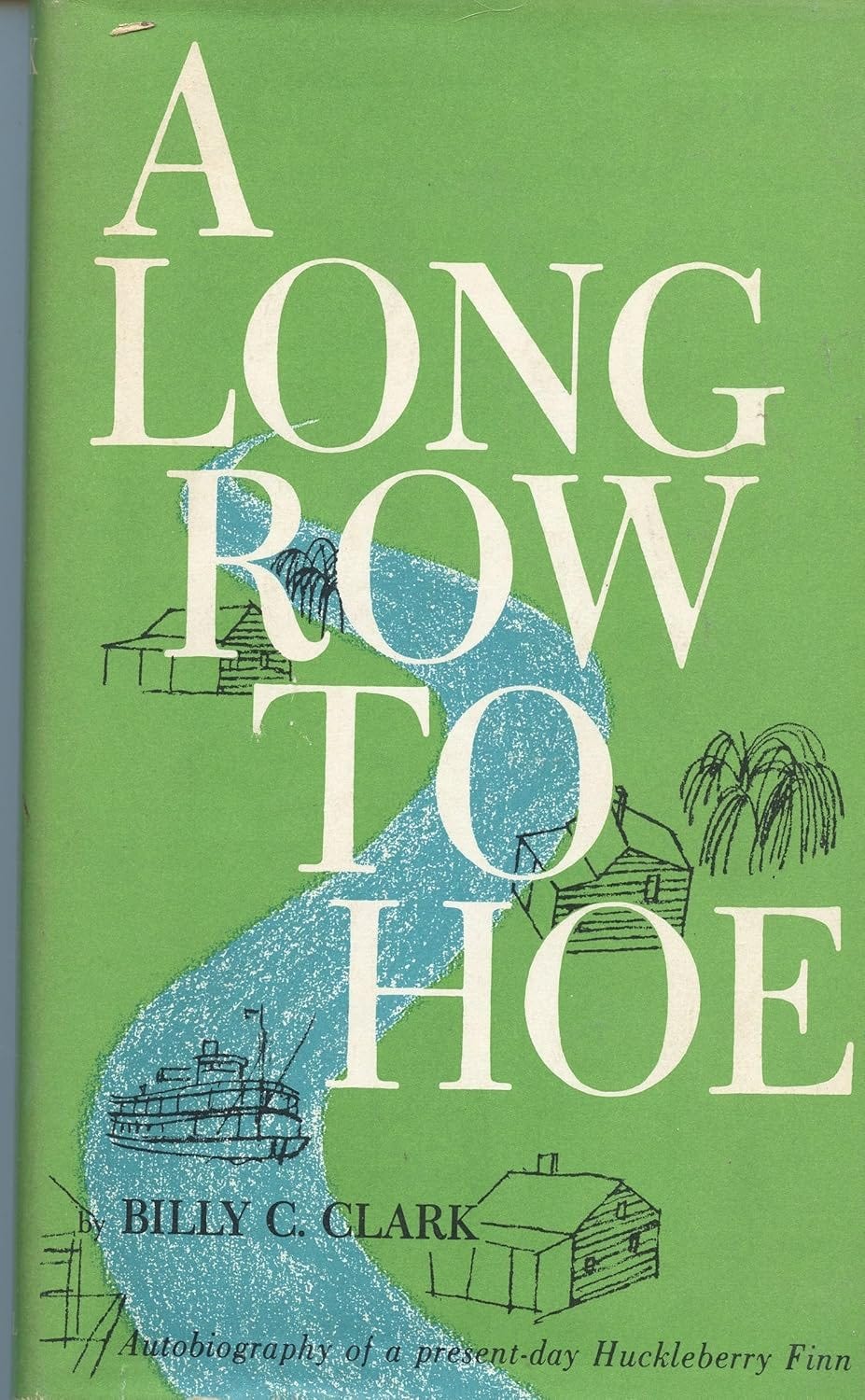A Long Row To Hoe
No elegy, all hillbilly
Growing up in New Philadelphia, Ohio, a stone’s throw from Appalachia, it was probably more likely than elsewhere that I’d run into Billy C. Clark’s 1960 book, A Long Row to Hoe. We owned a hardcover copy in Mylar, a library discard probably picked up for a dime or a quarter at a book sale, and I devoured it more than a few times on lazy summer days.
The book is Clark’s memoir of his childhood on the other side of the Ohio River in Catlettsburg, Kentucky. The world it describes, of “river trash” living in derelict houses on the water’s edge, setting traps and picking flotsam from the spring floods, already seemed like the ancient history of a foreign land when I was a kid. But it was only 200 miles from where I sprawled on the couch, reading in front of a box fan with a glass of Flav-r-aid beside me, to where Clark and his family once scratched out their existence.
And for all our power and running water in the 1970s, we were oftentimes not far from that real poverty line, the one where church and state morphed into vague and ephemeral “relief” and your winter coat arrived pre-owned and smelling of industrial laundry in a Buehler’s grocery store bag, dropped off in your cubby during class by some anonymous benefactor so you could walk home warm from school that day.
Keep reading with a 7-day free trial
Subscribe to The Junkman Codex to keep reading this post and get 7 days of free access to the full post archives.


